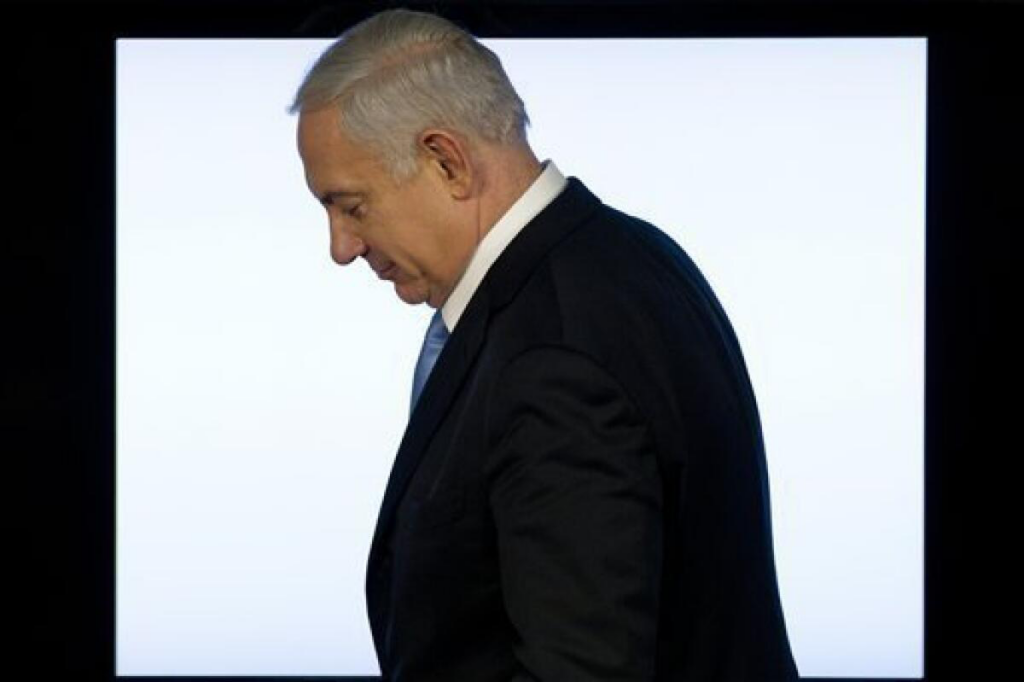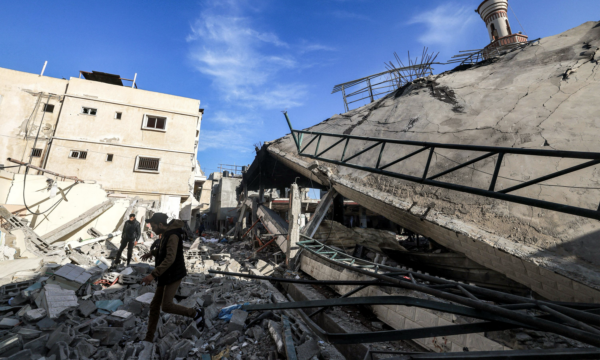Photo: The U.S. State Department has launched a probe looking at several Israeli airstrikes in Gaza that killed dozens of civilians. MOHAMMED ABED/AGENCE FRANCE-PRESSE/GETTY IMAGES
By Dion Nissenbaum and Vivian Salama
The looming Israeli military plans to invade Rafah have exacerbated tensions between Israeli Prime Minister Benjamin Netanyahu’s government and the Biden administration, which has grown increasingly frustrated with its attempts to rein in Israel’s military campaign.
The consequences of the distrust between President Biden and Netanyahu, who have spoken 18 times since Hamas’s Oct. 7 assault, have grown only starker in recent days. Biden now appears to be trying to draw a line with Israel’s proposed military operation on Rafah where 1.1 million Palestinians—many of them displaced—now reside.
Netanyahu, meanwhile, has vowed to forge ahead, saying Wednesday that Israel would mount a “powerful” operation in the city once residents are allowed to evacuate.
The U.S. has communicated that it wouldn’t—under any circumstances—support a plan for a full-scale invasion of Rafah, and that it would prefer to see targeted operations, U.S. officials said. The Biden administration has asked the Israeli military to produce a “credible plan” that included both a military and humanitarian component if it decides to disregard Washington’s advice and invade the city, U.S. officials said.
The growing clash between the two governments over Rafah underscores the Biden administration’s waning leverage over Netanyahu as his military continues to hammer Gaza, even as pressure grows inside the U.S. government to rein in Israel.

The State Department has launched a probe looking at several Israeli airstrikes in Gaza that killed dozens of civilians and the possible use by Israel of white phosphorus in Lebanon, to determine whether the Israeli military misused American bombs and missiles to kill civilians, U.S. officials told The Wall Street Journal.
Talk of a Rafah operation came as the U.S., together with Qatar, Egypt and Israel, continued to work on fragile plans for a sustained pause in fighting to secure the release of some of the remaining hostages in Hamas captivity while also ensuring that desperately needed humanitarian aid gets to the people of Gaza. Those efforts appeared to collapse Wednesday when Israel said it wouldn’t return to Cairo for further negotiations.
In recent weeks, U.S. officials have been exploring different ways to exert pressure on Netanyahu, but Biden has shown no willingness to use the biggest tool in his arsenal: weapons sales to Israel. The president has dismissed any talk of slowing arms sales to Israel, U.S. officials said, and instead has largely relied on the bully pulpit to try to express discontent.

U.S. officials have pushed the White House to take a more critical public approach to Israel’s war in Gaza, and Biden has in recent days expressed more concern about the way Netanyahu is leading the campaign, repeatedly calling Israel’s military campaign “over the top.” In a tense phone call Sunday over the potential for a full-scale Rafah invasion, Biden pushed Netanyahu to continue negotiations for a hostage release.
Sitting alongside Jordan’s King Abdullah II on Tuesday, Biden again emphasized the U.S.’s desire for a hostage deal, which would cease fighting for at least six weeks, as a path to a longer-term resolution. “The key elements of the deals are on the table,” Biden said. “There are gaps that remain, but I’ve encouraged Israeli leaders to keep working to achieve the deal.”
On Wednesday, Netanyahu’s office said the government wouldn’t send a delegation back to Cairo to continue negotiations.
Brian Katulis, a senior fellow at the Middle East Institute, a Washington-based think tank, said the Biden administration’s public messaging so far is having very little impact on pushing Netanyahu to develop an exit strategy for Gaza or embracing the Biden administration’s goal of advancing talks to establish a Palestinian state alongside Israel.
“The gap between the Biden administration and the Netanyahu government on a range of key issues has widened in recent weeks as the war between Hamas and Israel continues,” Katulis said.
Tensions between Biden and Netanyahu had been rising for months. In mid-December, Biden angered Netanyahu and Israel’s government when he told attendees at a campaign fundraiser that Israel was starting to lose support around the world because of its “indiscriminate bombing” of Gaza.
At that same event, Biden recalled something he once said to Netanyahu, whom he has known for nearly 50 years: “I said, ‘Bibi, I love you, but I don’t agree with a damn thing you have to say.’ That remains to be the case.”
The relationship reached a boiling point later that month, according to U.S. and Israeli officials, when Biden abruptly ended their Christmas-week call following a tense exchange about civilian casualties and, in Washington’s view, the need for Israel to shift to a new phase in its war, focused on targeted operations. Biden, who was so angry that he was almost shouting in the Dec. 28 call, according to officials, declared the conversation “over” and hung up.
Some of Biden’s senior aides are becoming increasingly worried that his support for Israel’s war in Gaza risks damaging his re-election prospects amid cratering support from young voters. Last week, Biden dispatched a group of foreign policy and political advisers to Michigan on Thursday in an effort to quell growing outrage over deaths in Gaza ahead of Michigan’s Feb. 27 presidential primary. The appeal has taken on a new urgency after Biden’s previous attempts to assuage Muslim and Arab-American supporters have proven insufficient.
Israel’s bombardment in the enclave has left more than 28,000 people dead, mostly women and children, according to Palestinian health authorities. The figures don’t distinguish between civilians and combatants.
Netanyahu has significant considerations about his own political longevity with his war against Hamas. He is deeply unpopular in Israel, and some more left-leaning media outlets have said the prime minister bears responsibility for the Oct. 7 attack on Israel.
Last month, the U.S. administration was considering enacting a package meant to send a message of discontent to Israel.
The package, U.S. officials said, would have included a reversal of two Trump-era policies: one that allows products made in Jewish settlements in the Israel-occupied West Bank to be labeled as being “Made in Israel,” and another that upended longstanding U.S. policy that the West Bank settlements violate international law.
U.S. officials said they were also considering imposing sanctions on two influential members of Netanyahu’s right-wing government: Finance Minister Bezalel Smotrich and National Security Minister Itamar Ben-Gvir.
Taken together, U.S. officials said, the package could have sent a strong message of discontent. But, in the end, the Biden administration only enacted sanctions against four largely unknown Israeli settlers, once again tempering the Biden administration’s respons
“It remains to be seen what leverage the Biden administration might be willing to use to address this gap between Israel and the United States on the Gaza endgame and the revived two-state solution concept.” Katulis said. “It’s one thing to leak messages of discontent and disapproval—it’s another thing to make a policy shift that might matter and lead to a different debate or decision calculus inside of Israel.”
On Tuesday, State Department spokesman Matthew Miller defended the Biden administration’s strategy, saying that Biden’s and Blinken’s have had an impact on the way Israel has conducted its operations, even if not always to the full extent the U.S. wants. Miller said some people might have unrealistic expectations about how much influence the U.S. has over Israel.
“I think that sometimes people pretend that the United States of America has a magic wand that it can wave to make any situation in the world roll out in exactly the way that we would want it to,” he said, “and that is never the case.”
THE WALL STREET JOURNAL


Leave a Reply
You must be logged in to post a comment.